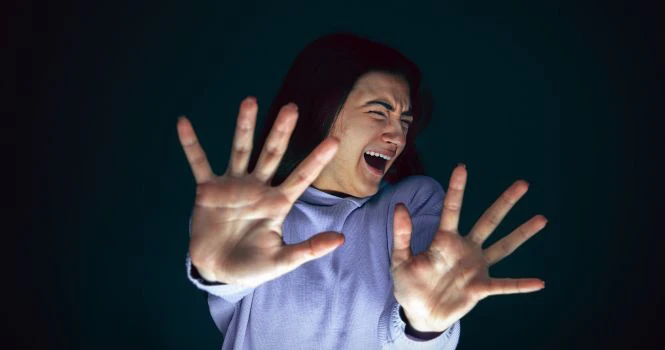Phobia is defined as an irrational fear of a specific object, situation or activity, often leading to persistent avoidance of the feared object, situation or activity.
Fear is normal human reaction whenever we sense danger or when confronted with something new or unknown that seems potentially dangerous.
Fear is when you are nervous, when you see a pitbull or rotweiler dog and Phobia is refusing to go on a morning walk just because you might see a dog.
Common types of Phobias
- Agoraphobia
- Social phobia
- Specific phobia
Agoraphobia is irrational fear of situations,like being away from the familiar settings of home.
Women are more commonly affected than men.
It also includes fear of open spaces, public places, crowded places from where there is no easy escape to a safer place or escape is perceived to be difficult.
Social Phobia irrational fear of performing in front of others and the person is afraid it might lead to embarrassment or humiliation.
Some examples are,
- Fear of public speaking or eating in front of others
- Speaking to strangers (asking for direction)
- Urinating in public loo (Shy bladder)
- Fear of blushing (Erythrophobia)
- Dating and speaking to authority figures
Specific Phobia
The stimulus is very well restricted or limited to a particular object or situation.
This disorder is only diagnosed, if there is marked disturbance in daily functioning of the patient.
Phobias are more common in women with an onset in late second decade or early third decade. Typically the onset is sudden without any apparent cause.
Course is chronic with gradually increasing restriction of daily activities.
Treatment:
The approach to phobias is usually multi modal.
- Psychotherapy
- Behavioural Therapy
- Drugs










